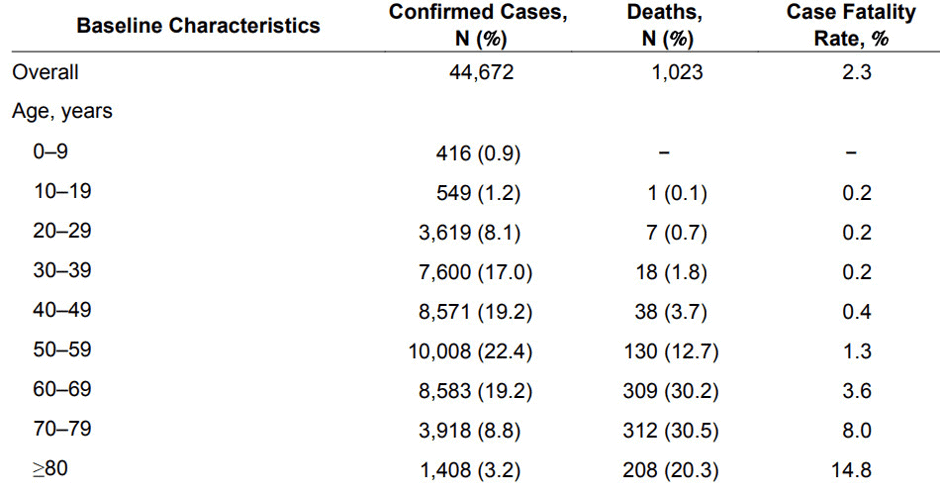The Novel Corona or Covid-19 virus pandemic is sweeping the world with over 80 countries reporting cases of the virus. While the situation in China, where the virus first started spreading in humans, seems to be tapering off (at the moment), other countries are at various stages of the virus taking root in the populace.
In this dire situation, if you have plans to travel now or in the summer season, you must have asked yourself whether travelling in these uncertain times is advisable. If you are conflicted about whether you should continue with your plan or not, here are some important considerations for you to take the call.
This blog is in 2 parts:
- Should you Cancel: Resources for people who already have travel plans
- Should you Book: Tips for people who wish to book a trip
Should you cancel your trip?
The decision to cancel or not should primarily be governed by 3 things – the situation at your intended destination, your age/ health and your risk appetite. A few pointers and resources on each are given below –
Track travel advisories:

Image Credit: CDC
Obviously, the first thing to do is assess the situation at your travel destinations. The Centre for Disease Control (CDC) of the WHO, is perhaps the most reliable resource to get the latest information on the virus. Their situation reports are released daily, summarizing the risk levels and tracking the number of cases/ fatalities in each country.
The link to the reports are here: https://www.who.int/emergencies/diseases/novel-coronavirus-2019/situation-reports/
Another report to read on specific travel advisory is available here: https://www.cdc.gov/coronavirus/2019-ncov/travelers/index.html
Obviously, any leisure travel plan to destinations that have specific travel advisories (even Level 1) would be foolhardy and should be avoided. Flights/ Visas to these countries would anyway be likely unavailable.
However, there are over 70 countries currently where the outbreak of the virus has been detected but are not in full-fledged epidemic mode. To assess your travel plans to those countries, read on.
How healthy are you:
A very important parameter is your health and age. A study of over 72,000 COVID-19 cases in China has revealed a few important features of this virus. It has pointed out that the Corona Virus is far more fatal for people with pre-existing conditions (such as heart diseases, blood pressure, diabetes, lung disease) and who are over 70 years old. For either set of these, the risks are significantly more and hence they should be very cautious in taking any trip at this time.
For younger people and who are in good health, the risk of infection and the risk of it leading to a critical condition is likely to be much lower – mortality rate for this group seems to be less than 1% globally as per current estimates. Thus the odds of a young, healthy person contracting the virus and developing critical complications in nominally impacted countries thus far seem to be low, if basic precautions are taken, while travelling.
 Case fatality rates in mainland China as of February 11, 2020. China CDC/ Vox.com
Case fatality rates in mainland China as of February 11, 2020. China CDC/ Vox.com
In-Transit Risks:
For most travellers, travelling will involve taking flights and other modes of transport. It is worth assessing the risks involved in getting infected in-transit.
When it comes to spread of a viral infection, time and distance matters. A 2009 study to evaluate inflight infections of H1N1 virus found that passengers were 3.6% to 7.7% more likely to get infected if they were sitting within 2 rows of an infected person. Similarly, another study evaluated that between 2-5 inflight infections happened in a 5 hour long flight from an infected person which jumped to 5-10 for a 10 hour long flight. Risks also differed between Economy and First as also how full the flights were.
The key inferences are:
- The risk of infection is highest within 2 rows of an infected person.
- Window seats are safer than aisle seats as far as risk of infection is concerned, due to lower mobility
- Shorter flights do reduce the risk of infection.
- Avoiding use of toilets or moving around in the flight can be helpful
Logically, the same principles will apply to rail travel with the likelihood of them being more crowded than flights, especially domestically in India. Also air-conditioned coaches will have less stringent air filtration in trains than on flights, potentially increasing the probability of the infection spreading further afar.
Clearly, road trips come out ahead as far as infection risks are involved and getting out of the city in and itself may lower the risk of infection.
Should you book a trip now?

Immediate Vs Down the Line
As of now, it is impossible to predict when the Corona virus will come under control and what damage it will do before it ebbs out or which countries will be laid low and which ones will be spared. In this scenario, making a fresh travel plan for the distant future seems fraught with risk. For example, most European countries have already reported cases of Corona infections. It took China 2 months of unprecedented lockdowns to curtail infections and they could rear up again as the restrictions are relaxed. So for Europe, where it goes from here is anybody’s guess. Same applies to several South East Asian countries and the Middle East. How the virus behaves in the different environment may be key to how quickly it recedes. Thus, it may thus be best to wait, atleast a few weeks, to see how it unfolds before committing to a trip to these destinations.
For more immediate plans to travel, follow the same principles as the “Should you Cancel” section above.
Taking advantage of the price crash:
There are already a large number of cancellations being reported by travel agencies for itineraries in the next 2 months. Flights and hotels prices have and will crash for the season. For example, flights to Paris for March and May are available for under 45,000/- as of now. For the adventurous and bargain hunters, a punt here may be quite tempting. However, if you do decide to go ahead and book, ensure that you get the best cancellation policy and refundable fare possible for flights/ hotels and other bookings. A “Cancel for Any Reason” travel insurance can also cover your downsides.
Try off beat/ off season:
For your summer vacation, picking an offbeat destination may be the safest idea. Avoid the urban and well-connected cities for more secluded destinations and you may find that things are better there. Think Lakshwadeep, Fiji, treks in the Himalayas and the likes which are more disconnected and hence protected from the spread of virus to some extent. Obviously, there is no cure for bad luck.
As explained earlier, shorter flights will reduce the risk of infection. So short hops through smaller airports is your best bet when it comes to air travel.
Be flexible in your plans:
Wherever you go though, the risk of disruption, if not contagion, remains. So it is important to keep your plans as flexible as possible so you can manoeuvre around lock-downs and the like. Avoid booking hotels in advance, travel by car where possible and keep your itinerary loose. This way you will have the best chance of reacting to the situation on the ground effectively. Provision for a few days spare at the end of the trip for delays (or even a need for quarantine).
Read our detailed blog on precautions for the corona virus to take while travelling, here.
Be safe, wash your hands and have fun!
Disclaimer: This page does not provide medical advice. It is intended for informational purposes only. You are encouraged to confirm and update any information obtained from or through this page with other sources.


